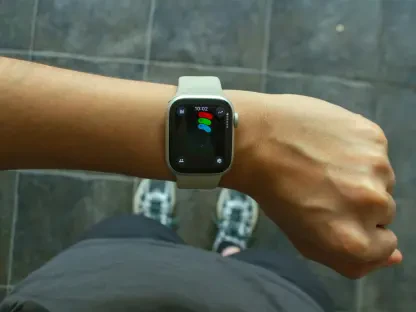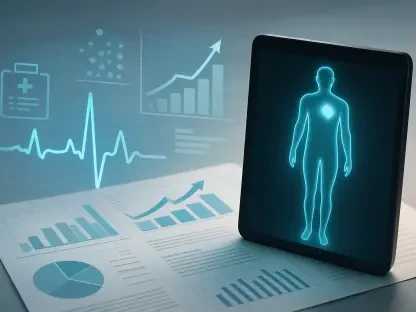In today’s rapidly evolving healthcare environment, the integration of healthcare systems emerges as a pivotal force within the industry. This transformation is driven by the need to overcome operational inefficiencies that have long constrained healthcare facilities worldwide. With the increasing complexity of healthcare operations and rising patient expectations, healthcare system integration promises to bridge disparate systems, streamline workflows, and elevate patient care quality through cohesive technology solutions.
Exploring Core Features and Capabilities
The integration of healthcare systems primarily hinges on the crucial feature of interoperability within health IT platforms. Interoperability facilitates seamless data exchange, ensuring that healthcare providers can access complete and accurate patient information on demand. This capability significantly reduces delays in decision-making and minimizes the risk of medical errors. By enabling different systems to work harmoniously, interoperability forms the backbone of effective healthcare delivery.
Unified health information systems are another centerpiece of integrated healthcare solutions. These systems amalgamate diverse health information sources, granting providers a comprehensive view of patient histories and treatments. This consolidation not only enhances clinical decision-making but also optimizes patient interactions by reducing redundant information entry and improving care coordination. As a result, an integrated system delivers a continuous and coherent healthcare experience.
Advanced data analytics and automation underscore the operational efficacy of healthcare system integration. By leveraging real-time data and automated processes, these tools facilitate predictive analytics, optimize resource allocation, and improve clinical outcomes. Such capabilities are instrumental in tackling contemporary healthcare challenges, transforming voluminous data sets into actionable insights, and fostering informed, proactive care delivery.
Recent Technological Advancements
Recent developments signal notable shifts in healthcare system integration, with emerging technologies catalyzing increased adoption. The advent of cloud computing and AI-driven platforms has enhanced flexibility and scalability, enabling healthcare providers to innovate and adapt swiftly. These technological advancements empower institutions to address specific operational demands while maintaining a patient-centric focus, ultimately fostering improved healthcare outcomes.
Furthermore, the integration of telehealth solutions signifies a progressive trend in healthcare delivery, expanding access to care through virtual platforms. Telehealth not only enhances convenience for patients but also offers healthcare systems a strategic avenue for efficient resource management. This tech-driven evolution in healthcare integration continues to open new pathways for care delivery, broadening access and fortifying healthcare infrastructure.
Practical Implementations and Success Stories
Healthcare system integration has found real-world success, evidenced by diverse implementations across various healthcare settings. Notable examples include hospitals that have implemented integrated EHR systems, which streamline access to patient data and facilitate coordinated care. These integrations often result in significant reductions in administrative burdens and improvements in patient satisfaction scores, highlighting the tangible benefits of a unified system.
Specific use cases illuminate the advantages of healthcare system integration in enhancing patient care and operational efficiency. For instance, some facilities have successfully implemented automated scheduling systems, sharply reducing waiting times and improving patient throughput. Such innovations underscore the capacity of integrated approaches to drive meaningful improvements in both clinical and operational domains.
Overcoming Barriers and Challenges
Despite its promise, healthcare system integration encounters numerous challenges. Technical hurdles, including integration with legacy systems, demand significant resources and strategic alignment. Furthermore, regulatory complexities can stymie progress, requiring constant adaptation to comply with evolving standards. These barriers necessitate coordinated efforts, innovative thinking, and collaborative partnerships to realize the full potential of healthcare system integration.
Efforts to mitigate these challenges are ongoing, with stakeholders exploring novel solutions to streamline adoption. Collaborative frameworks among technology providers and healthcare institutions are instrumental in creating interoperable platforms that cater to diverse needs. As these efforts gain momentum, the path toward seamless integration becomes increasingly attainable.
The Road Ahead: Prospects for Integration
The future of healthcare system integration is poised for transformational growth, heralding new horizons for healthcare delivery. Potential breakthroughs in AI, machine learning, and IoT technologies promise to further elevate integration capabilities, offering more precise and personalized patient care experiences. These innovations hold the potential to revolutionize healthcare operations, enhancing efficiencies and driving improved patient outcomes.
Looking forward, the sustained progress in healthcare system integration will likely play a pivotal role in shaping the industry landscape. As technological advancements continue to align with healthcare objectives, integration will become synonymous with enhanced care quality, access, and operational excellence. This trajectory promises a future where integrated systems usher in a more responsive, efficient, and patient-centered healthcare ecosystem.
In Closing: Summary and Insights
Overall, the review of healthcare system integration highlights its transformative role in optimizing operational efficiencies, addressing care team challenges, and enhancing patient satisfaction. The consolidation of data into streamlined systems emerges as a key enabler of these outcomes, aligning with modern trends and patient expectations. As healthcare providers continue to innovate and adapt, the integration of systems represents a cornerstone for achieving sustainable, quality healthcare delivery. This potential for synergy and efficiency underscores the enduring importance of integration as the healthcare sector moves forward.









